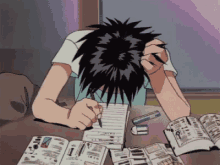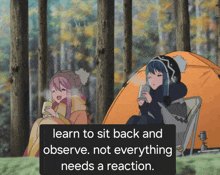
TIPIf you want to use another language, please use the translation feature in your browser.

1. Introduction: A Promise to Yourself
I still remember the pride of solving a calculus problem at midnight or reciting historical dates by heart. Yet today, those formulas and names feel like distant echoes—learned with effort, then left to vanish. Why does so much of what we study in school simply slip away? This article explores the hidden reasons behind that fading and how we can reclaim the knowledge we once worked so hard to earn.
2. Curriculum Focus vs. Daily Life
Schools often prioritize memorization—dates, definitions, formulas—over real-world application. Exams reward short-term recall rather than long-term understanding. As a result, students master facts to ace tests, not to solve everyday challenges. When lessons never connect to our lives outside the classroom, our brains label them “nonessential” and let them fade.
3. Lack of Context and Application
Imagine learning the physics of levers without ever building a simple seesaw at home. Or studying Spanish grammar without ever trying to order coffee in Madrid. When theory lives in a vacuum, it feels abstract—and our minds archive it as trivia. Without hands-on practice, concepts never form the neural hooks that keep memories alive.
4. The Forgetting Curve: How Our Brain Prunes Unused Information
Psychologist Hermann Ebbinghaus mapped how memory decays over time:
- 50% of new information slips away within an hour
- 70% is gone after one day
- 90% fades after a week
Unless we revisit and apply what we learn, our brain automatically clears out “unused files” to make room for new, relevant data.

5. The Cost of Irrelevant Material
When school content fails to resonate, motivation plummets. Graduates struggle to link theory to workplace problems. Critical skills—communication, problem-solving, financial literacy—often get sidelined. The gap between academic exercises and real-life demands leaves many adults unprepared and disillusioned.
6. Case Study: Lost English Fluency
Rani once aced every listening and reading test in high school, but after graduation she never spoke or wrote in English. Two years later, her vocabulary had shrunk and her confidence evaporated. If she’d practiced conversations or joined a discussion club, those language skills could have opened doors to jobs, travel, and new friendships.

7. Apply What You Learn Through Mini-Projects
Turn abstract lessons into living experiments:
- Mathematics → Track your monthly budget and calculate savings rates.
- Foreign Language → Join an online conversation group or watch shows without subtitles.
- Physics → Build a simple balloon-powered rocket in your backyard.
- Literature → Write a short story inspired by a favorite author’s style.
Mini-projects force you to recall and reframe concepts in practical contexts.
8. Embrace Problem-Based Learning
- Identify a real challenge (e.g., reducing household energy use).
- Pull in school concepts (law of conservation, efficiency ratios).
- Test your solutions (measure power consumption before and after).
- Reflect on outcomes and tweak your approach.
This cycle of apply-test-reflect cements knowledge far more effectively than rote drills.
9. Develop Review and Reflection Habits
- Spaced Repetition: Schedule quick reviews at increasing intervals (1 day, 1 week, 1 month).
- Learning Journal: Each day, jot down one concept and how you might use it.
- Peer Teaching: Explain ideas to a friend or family member—the act of teaching engraves memory.
These habits transform fleeting facts into permanent skills.
10. Conclusion: Investing in Living Knowledge
School builds a foundation—it doesn’t guarantee permanent recall. True mastery comes from active use: revisiting, applying, and reflecting on what we learn. When you integrate knowledge into your daily routines, it stops fading and starts growing roots in your life.
“The most valuable lessons aren’t the ones we memorize—they’re the ones we live.”
Reflective:
Think of one subject you once excelled at. How could you use it today in a simple, real-world way? Take one small step now to bring that knowledge back to life.

